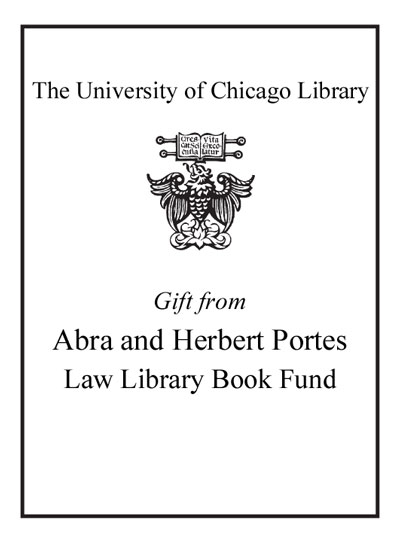eAccess to justice /
Saved in:
| Imprint: | Ottawa : University of Ottawa Press, 2016. |
|---|---|
| Description: | vi, 412 pages ; 23 cm. |
| Language: | English |
| Series: | Law, technology and media Law, technology, and media. |
| Subject: | |
| Format: | Print Book |
| URL for this record: | http://pi.lib.uchicago.edu/1001/cat/bib/11049387 |
Table of Contents:
- Acknowledgements
- Introduction
- Part I. Justice Values and Digitalization
- Introduction: Fundamental Values in a Technologized Age of Efficiency
- I. Cyberjustice and International Development: Reducing the Gap Between Promises and Accomplishments
- II. Evaluating e-Justice: The Design of an Assessment Framework for e-Justice Systems
- III. The Role of Courts in Assisting Individuals in Realizing Their s. 2(b) Right to Information about Court Proceedings Graham Reynolds
- IV. Privacy v. Transparency: How Remote Access to Court Records Forces Us to Re-examine Our Fundamental Values
- Part II. Courtroom Interactions And Self-Empowerment
- Introduction: Troubling the Technological Imperative: Views on Responsible Implementation of Court Technologies
- V. ATJ Technology Principles: Access to and Delivery of Justice
- VI. Empowerment, Technology, and Family Law
- VII. The Case for Courtroom Technology Competence as an Ethical Duty for Litigators
- VIII. Tablets in the Jury Room: Enhancing Performance while Undermining Fairness?
- Part III. Toward New Procedural Models?
- Introduction: Continuity and Technological Change in Justice Delivery
- IX. The Old... and the New? Elements for a General Theory of Institutional Change: The Case of Paperless Justice
- X. Cyberjustice and Ethical Perspectives of Procedural Law
- XI. Three Trade-Offs to Efficient Dispute Resolution
- XII. The Electronic Process in the Brazilian Judicial System: Much More Than an Option; It Is a Solution
- XIII. Access to Justice and Technology: Transforming the Face of Cross-Border Civil Litigation and Adjudication in the EU
- Postscript: eAccess to Justice - Brief Observations
- Bibliography
- Contributors

